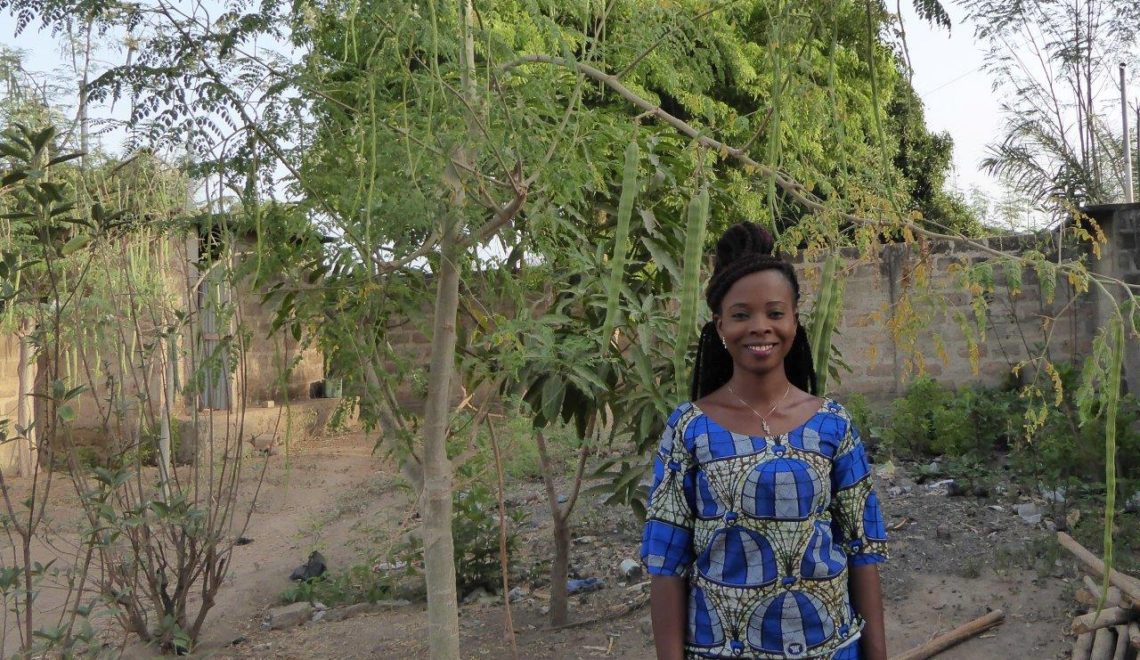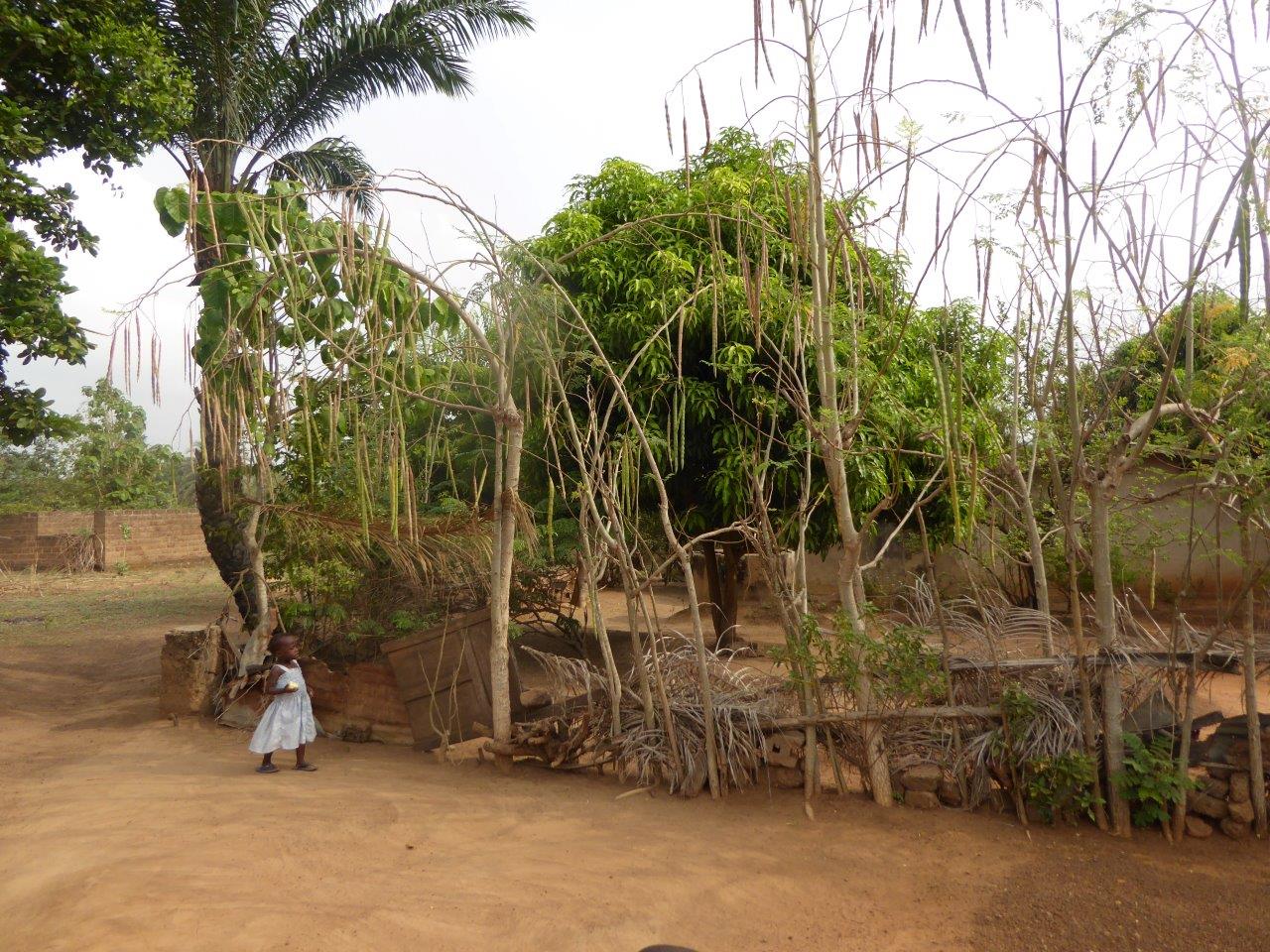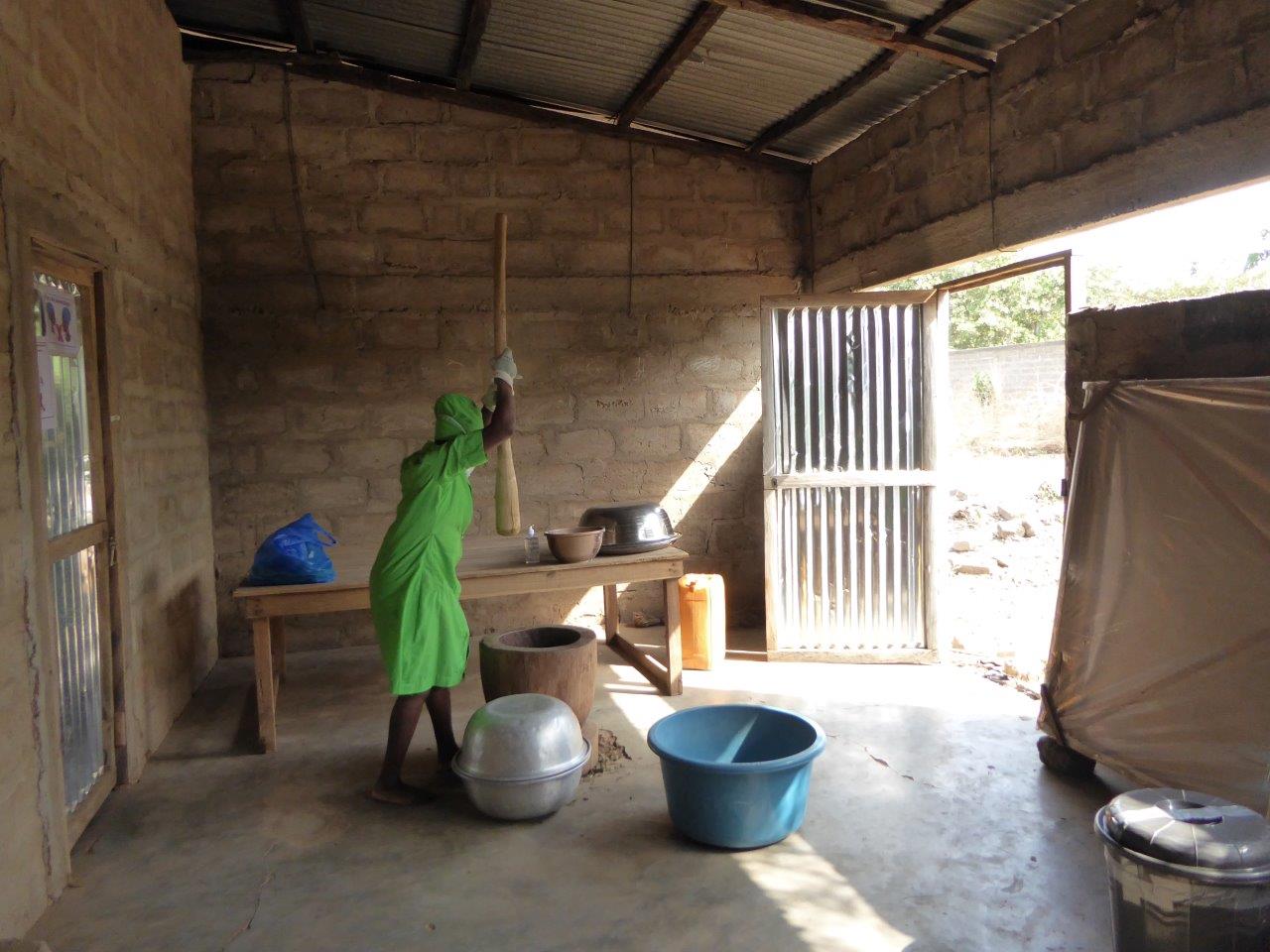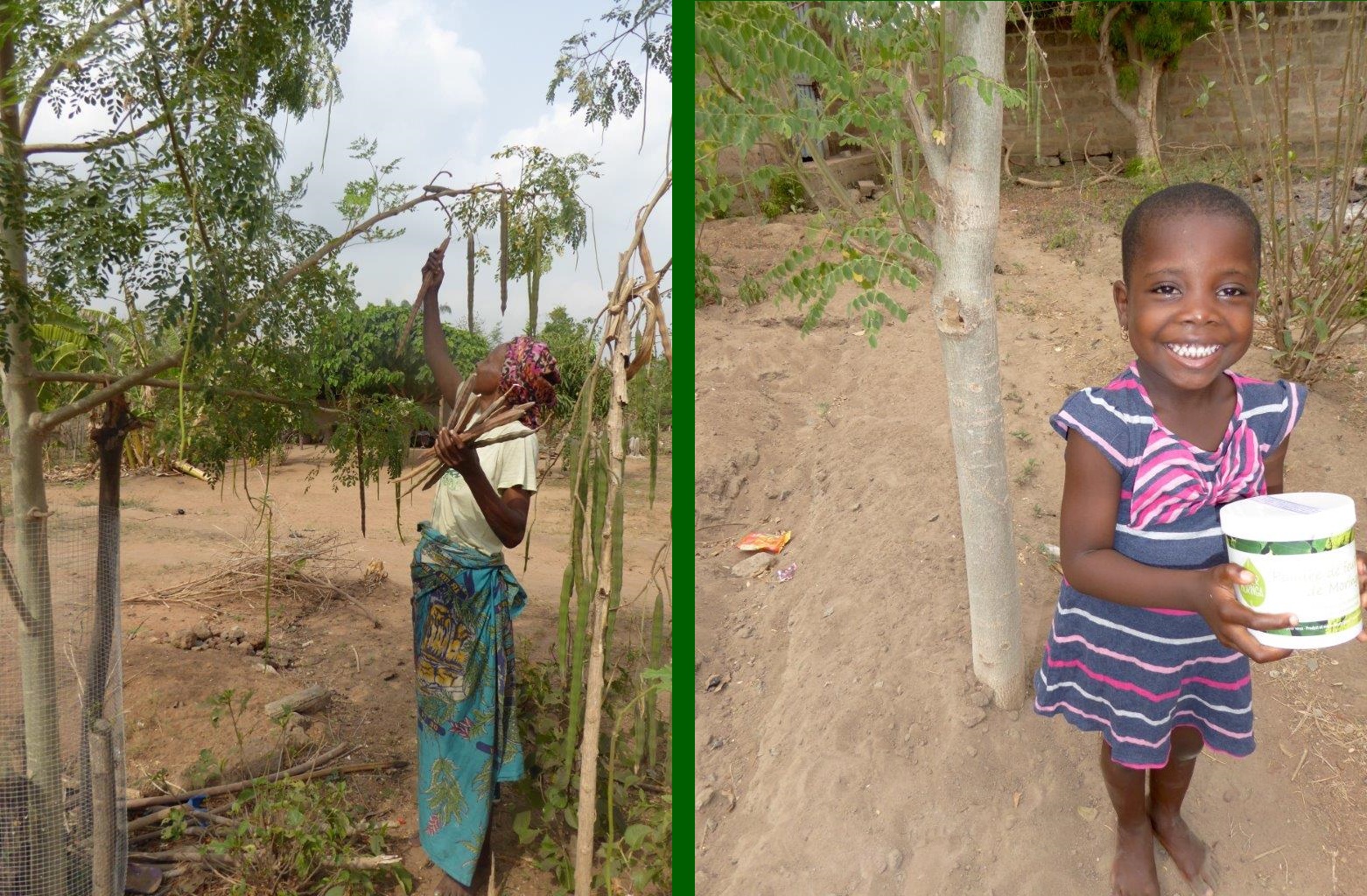
Meet Pierrette, A Moringa Superstar
Pierrette Djemain is a 31 year old widowed mother of five. She lives in Benin, a developing country the size of Pennsylvania, located in West Africa. Her story is one that is not often heard, but is increasingly important to understand, and ever too common for women in developing nations.
Want to know how much the world weighs? Ask an African woman.
At age fourteen, short on cash and in between moves, her family was staying at an aunt’s house. Shortly upon arrival, Pierrette’s mother died, leaving twelve children and a husband with no home, and even worse, no woman to care for them. To understand how dire it is when a wife or mother dies in a highly patriarchal society like Benin, one must understand the familial role of a woman.
Women in Benin are much more than partners or mothers- expectations are unimaginably high. Providing meals, fetching water from far away places, and caring for an average of 5 children, all with little money or resources are just a handful of the chores women endure daily. The reward for their work? Not much. In many parts of Africa, these expectations are so rigid that arguing against these roles with a man is like arguing that moringa is worthless. Waste. Of. Time.
Even if the husband seeks out and marries multiple other women, she is expected to continue these roles. She is also expected to do so without feeling an ounce of anger or jealousy. The household falls apart when a woman is lost, which between the dangers of malaria and childbirth, is quite common. This happened when Pierrette’s mother died, and again when her aunt kicked them out.
Escaping Malnourishment
Lacking money and a woman’s influence, Pierrette’s dad stopped paying school fees for his daughters, but continued to do so for his sons. 19 years old, without a job or an education, she did what many do in her situation, and found an eager, providing husband. Over the next five years she birthed four children. When she was just a month into pregnancy with a fifth, her father died. Three days later, so did her husband. After refusing constant proposals from his family members, community members, even strangers, extreme malnourishment threatened both Pierrette and her children.
She started doing laundry for individual homes, restaurants, and hotels to make ends meet. She rented out one room with just enough space to fit her belongings and a mat on the floor where she and her four children slept. Work was sparse, especially with many refusing to employ her because she was pregnant. Laundry is a manually laborious task- lugging water from wells, scrubbing clothes in basins and hanging them out to dry. Each “load” generally takes about three hours.
They said she would become sick. Which she did, twice, almost losing the baby in the process. She would take a week off of work until she was in decent enough health to start back up again. She worked like this until she was eight months pregnant. When potential employers questioned her, she responded asking them how she would be able to feed her four children if they did not hand over their dirty laundry.
Enter: Moringa
A hopeless Peace Corps volunteer used to the luxuries of washing machines, struggling through weekly loads of hand washing laundry, asked the owner of a restaurant he frequented for a solution. The owner happened to be Pierrette’s oldest sister so she was quick to give her story and contact. The volunteer, Mark, began paying Pierrette to do his laundry and one day encouraged her to attend a women’s group that with his assistance, worked with moringa powder. The women grew, harvested, processed and packaged the powder for Mark to take to the economic capital of Benin once a month to sell. Every time the women showed up for work, he was able to hand them over a crisp 1,000 CFA bill, equivalent to about $1.60 USD and double the average daily salary in Benin.
After three months of increasing production- and hope- a problem arose and the women’s group lost access to the plot of land where they were growing moringa. The women’s club was dismantled.
The day after breaking the news, Pierrette, who was generally the more timid and reserved woman of the club, approached Mark and asked if she could continue to give him moringa to sell. He agreed, having no idea what this was going to mean.
From a big laundry gig, Pierrette earned 2,000 CFA. She put half towards feeding her children and the other half towards moringa. She formed an agreement with a neighbor; in exchange for access to his moringa trees and some land, she would give him a fraction of the profits. With the 1,000 CFA she managed to buy some materials and start her business.
“Le Confiance” is born
Early on, a woman learned about what Pierrette was trying to do and joined the effort. Same as Pierrette, as a mother of five she had lost her husband, and did not know what her children would eat. She and Pierrette worked together on the small plot of land to produce moringa powder. Every time she met with Mark she kept bringing more and more powder. Eventually she asked if he could help her formalize this into business. Blown away by her ambition, he again happily agreed.
Two years after starting her work with moringa she had turned that 1,000 CFA investment into 400,000 CFA. A year after that, 1,300,000 CFA. The year following, in 2016, she brought in 2,500,000 CFA. She has helped reforest Benin with over 5,000 moringa trees. And the owners of those trees? Over 100 uneducated, widowed women who were previously struggling to get by.
A continuous problem with aid word is the disconnect between the “starving Africans” and those trying to lend a helping hand. She understands the struggling African women she works with better than any aid worker because she was and is one. Every time she meets a new woman to work with and tells her story, something lights up within them. Knowing that the same motorcycle owning, well-fed and well-dressed Pierrette, was scraping by to feed her children just a few years ago, there is a shift and they are suddenly more motivated to make lifestyle changes. With the name, “Le Confiance”, french for confidence, her social enterprise has grown significantly and will continue to do so until every woman feels confident in her capabilities.
Moringa as a Weapon
Pierrette is quick to jump into a discussion about how much more women suffer in Africa than men. She says that husbands feel entitled to make all decisions in the family and treat their wives no better than sheep.
Le Confiance’s solution to this problem? Arming every struggling woman with the powerful weapon of moringa. Pierrette understands that when women do not have a life purpose beyond their familial roles, they do not have the strength to speak for themselves. By empowering them with the responsibility of caring for moringa trees and rewarding their efforts with profit, they gain self-purpose.
Study after study claim that working through women is the most efficient strategy for sustainable development. Women are more likely to feed their children and pay school fees when given the financial means. By empowering women, the next generation will be healthier and better educated, key elements in developing a nation.
Meet Gracias
Gracias Djemain is a rambunctious four year old. She loves to sing, dance and play tag. She lives in Benin, a country where half the kids her age are malnourished, but she has never gone a day hungry. This past fall she joined her four older siblings at the nearby private school. Her mother, Pierrette, has dreams of her going to university and perhaps even traveling abroad. Gracias is on track to change how society values women in Benin. What gave her that power? Well it all started with one motivated woman, 1,000 CFA and some moringa trees.














